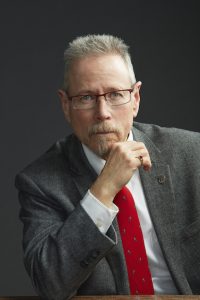Tell Shelley Anne: Interview with Dr. Aaron Devor
One of the foremost transsexuality and transgender researchers.
Dr. Aaron Devor, PhD, FSSSS, FSTLHE, has been studying and teaching about transgender topics since the early 1980s. He established and holds the world’s first Chair in Transgender Studies; initiated and hosts the international, interdisciplinary Moving Trans History Forward conferences; and founded and provides faculty leadership for the world’s largest Transgender Archives. He has published numerous articles, is an author of four books and editor of another, all on transgender topics. Devor has delivered lectures to audiences around the world, including more than 35 keynote and plenary addresses. He is a national-award-winning teacher and an elected member of the International Academy of Sex Research. Dr. Devor is a former Dean of Graduate Studies (2002-2012), and a professor of Sociology, at the University of Victoria in British Columbia, Canada. WATCH videos of Aaron Devor
TGForum: How long have you been researching transsexuality and the transgender communities? What got you started doing this research?
Dr. Devor: I did an M.A. in Communications at Simon Fraser University in Vancouver BC 1982-1985. I chose to do my thesis about people who identified as women and who, when they were out in public, were unintentionally assumed to be men. I was motivated to do that research because, at the time, I had abundant personal experience with that happening. As part of my background research for that work, I started reading everything that I could find about gender variance. That included pretty much all the scholarly literature that was then available about trans people (and, at that time, there was so little that one could pretty much read it all). The word transgender was not commonly in use then, nor was the term nonbinary. If those words were around then, I suspect that at least some of the people with whom I spoke would have called themselves nonbinary or transgender. Lacking any vocabulary to describe who they were, and living in a time of binary gender, I made up the term Gender Blending because that is what I thought that they were doing. I later turned my MA thesis into my first book, Gender Blending: Confronting the Limits of Duality (1989), which I now think of as the first-ever book about nonbinary people.
TGForum: You have been described as an internationally respected expert on gender, sex, and sexuality. What have you uncovered?
Dr. Devor: Nothing that I have done has been earth shattering. I have written a few things that have been somewhat innovative, and I have done a couple of things that had not been done before. I have already told you about my Gender Blending book. My second book, FTM: Female-to-Male Transsexuals in Society (1997, reissued in 2016), was only the second-ever book-length study about trans men, and it was the first that was neither disparaging nor written by a gatekeeper. It was based on in-depth interviews with 45 trans men whose voices are heard throughout the 700 pages of the book. For many years, it was the book about trans men.
In 2004, I published a model of trans identity development, Witnessing and Mirroring: A Fourteen-Stage Model of Transsexual Identity Formation, which has been influential in thinking about how trans people come to understand themselves as trans.
In the mid-1990s, I started to learn about a trans man, Reed Erickson, whose Erickson Educational Foundation was tremendously influential in the advancement of the social acceptance of trans people in the second half of the 20th century. At the time that I started to learn about him, his name had slipped from history. I have been researching his life and work and writing about him ever since. Most of what is currently known about him can be traced back to my work. His importance is hard to overstate.
The WPATH Standards of Care play a huge role in the lives of many trans people. I have been an author on versions 6 and 7 and will be an author on version 8 when it comes out in 2021. I was largely responsible for version 6 relaxing the requirements for upper surgery and hormone readiness, and for softening the language about mental illness, among other changes. In version 7, I went through the entire document with a fine-toothed comb and ensured that the language made room for nonbinary people to receive treatment. Since 2014, I have been responsible for guiding the translations of version 7 into world languages (now at 19 languages).
In 2011, I founded the Transgender Archives, located at the University of Victoria. At over 530 linear feet, or 160 meters, (1.5 football fields long), the Transgender Archives are the largest and most extensive of their kind in the world. Records of research related to trans, nonbinary, Two-Spirit, and other gender-diverse people go back into the 19th century, while the Transgender Archives’ records related to trans activism start in 1960. The collections are in 15 languages from 23 countries on all continents except Antarctica and include some significant Indigenous holdings.
In 2014, I initiated the biennial international Moving Trans History Forward conferences (MTHF) which draw together people of all ages from around the world who contribute as community activists, researchers, students, educators, artists, service providers, family members, and allies. The Moving Trans History Forward conferences are not just for scholars, or just for community people. MTHF conferences are a unique blend that create opportunities for cross-fertilization among members of the public, students and faculty, artists, activists, trans, nonbinary, Two-Spirit, and other gender-diverse people, family members, allies, and service providers. Conferences consider both our history, and the crucial issues which impact us today, and into the future, locally, nationally, and globally. The most recent conference brought together 300 delegates including 100 speakers from 11 countries and drew 600 people to the largest event (watch a highlights video). We are now planning a fully online event for March 11-14, 2021.
In 2016, I founded the world’s first Chair in Transgender Studies. As the Chair in Transgender Studies, I have continued to provide leadership to the Transgender Archives and the Moving Trans History Forward conferences. In addition, the Chair in Transgender Studies’ visiting scholars and scholars-in-residence programs have hosted 57 scholars to-date from across Canada and the US, and from 17 countries for visits lasting from a few days to a full year. The Chair has also nominated two stellar trans individuals who have received honorary degrees from the University of Victoria: Lynn Conway, DEng (2016) and Martine Rothblatt, LLD (2019). As of this writing, we have provided 52 scholarships and fellowships to support trans, nonbinary, Two-Spirit, and other gender-diverse scholars working in any field, and people of all genders doing research in Transgender Studies. We hold a well-attended colloquia series, and monthly social drop-ins. We also periodically offer arts and cultural events, and have presented 37 public speakers and colloquia. We are also active on Twitter, Facebook, Instagram, YouTube, and Flickr.
TGForum: As Research Chair in Transgender Studies at the University of Victoria, is there such a thing as a typical day?
Dr. Devor: No. Every day is different.
TGForum: In 2016, through her Foundation, Jennifer Pritzker gave a $2 million donation to create the world’s first academic chair of transgender studies, at the University of Victoria in British Columbia and you were chosen as the inaugural chair. Today, if someone offered you that amount of money, what happens?
Dr. Devor: The wonderfully generous donation from the Tawani Foundation allowed the establishment of the Chair in Transgender Studies. The challenge now it to ensure its continued existence. Another donation of that size would contribute to setting up an endowment that could provide a sustainable income to support the Chair in Transgender Studies for the future.
TGForum: How do you continue to find inspiration in your work?
Dr. Devor: My inspiration comes from seeing trans, nonbinary, Two-Spirit, and other gender-diverse people become stronger.
TGForum: Who has had the biggest influence on your life?
Dr. Devor: I am Jewish. Jewish values have guided my life. Some of the ones that stand out for me are the injunctions to do the work of Tikkun Olam (repair of the world) and the guidance from a book called Ethics of the Fathers that “You are not obligated to complete the work, but neither are you free to desist from it.” The Jewish Torah (Bible) gave us the Ten Commandments, and the Golden Rule, and teaches Sedek, Sedek, Tirdof (justice, justice, you shall pursue).
TGForum: Years from now, when you have ridden off into the Canadian sunset, how do you want people to look back at you?
Dr. Devor: I would like to be remembered as someone who made a difference and left the world a better place than I found it.
Category: Interview




